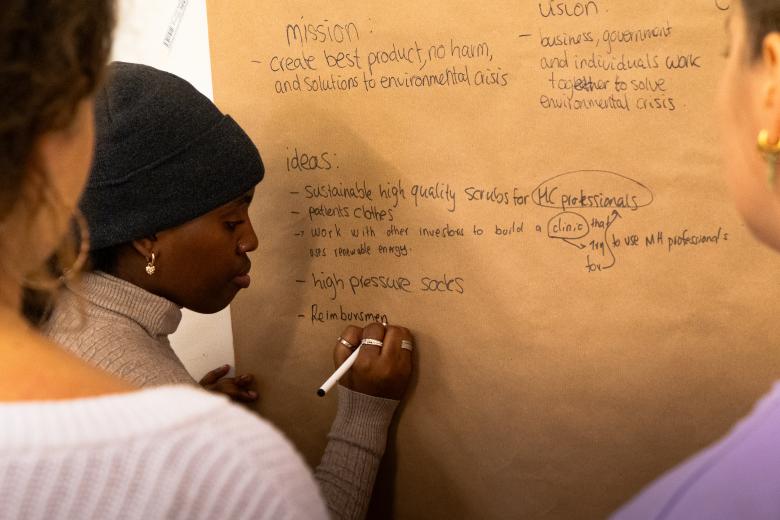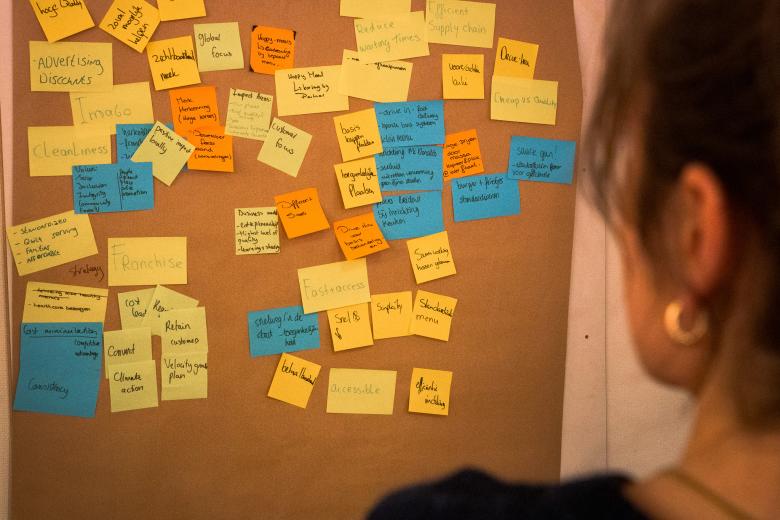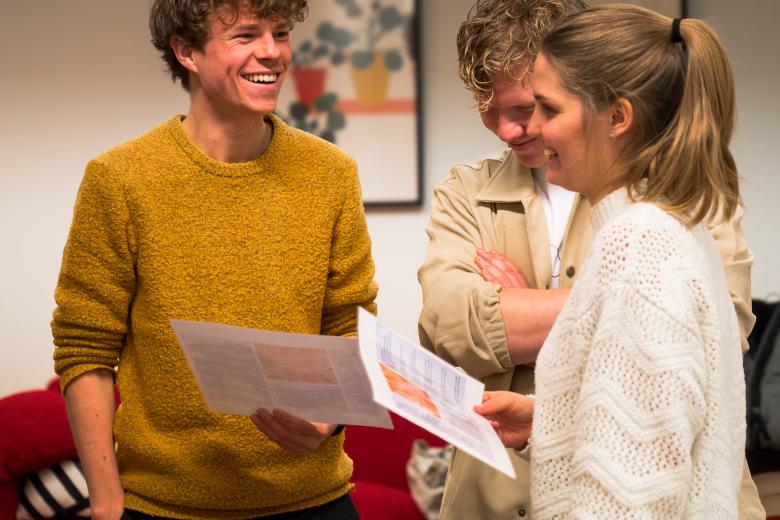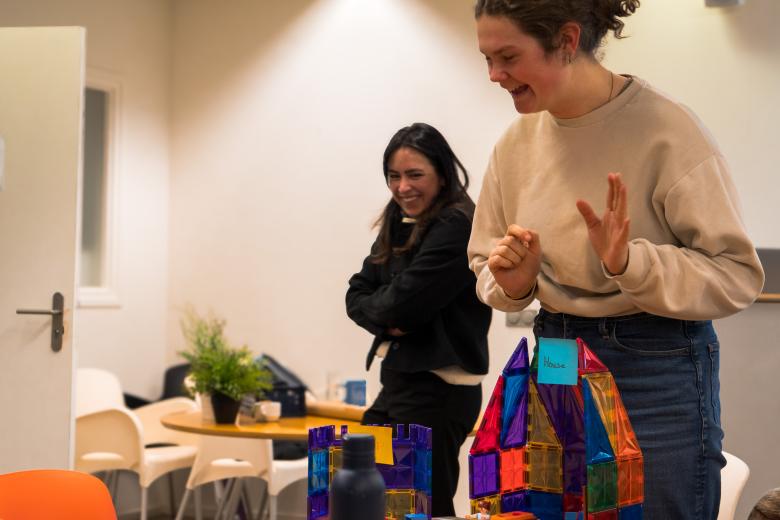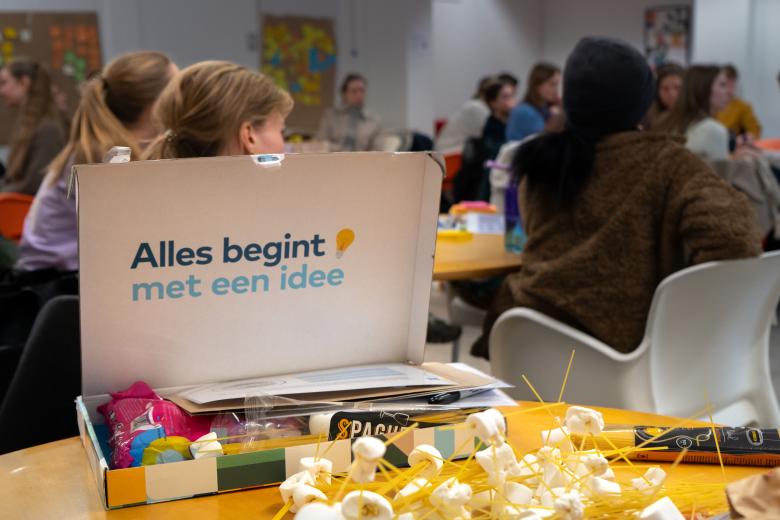The new curriculum of Healthcare Policy, Innovation and Management
Are you keen to start the master’s programme in Healthcare Policy, Innovation and Management (HPIM)? If so, you will be equipped for an innovative career in healthcare. The master’s new, competency-based curriculum is fully aligned with the labour market and provides you with the necessary knowledge, skills, and professional development to contribute to the sustainable healthcare system of the future.
During the master’s programme, you will develop five major competency roles: as an Expert, Researcher, Innovator, Collaborator, and Professional. Would you like to develop further in a particular role? If so, you can take advantage of the extensive range of interesting elective modules offered by the programme.
Within the HPIM master’s programme, you will tackle real-world challenges such as improving processes in a healthcare organisation, developing policies to address issues in international healthcare systems, and researching emerging trends shaping the future of healthcare. The new curriculum has been carefully designed to meet the needs of the labour market. Programme coordinator Arianne Elissen explains further: “We now focus strongly on developing relevant knowledge and the skills and attitudes that innovative healthcare professionals need. While the programme’s content remains the same, we have completely changed the way students learn.” This shift followed a curriculum evaluation. Although students enjoyed the theory, they often struggled to see how to apply it in practice. “Those concerns completely disappeared,” Arianne says.
Skills à la carte
At the heart of the master’s programme are seven Authentic Professional Tasks: complex, realistic cases that mirror the kind of challenges HPIM graduates will face in their careers. “We choose cases that are as current and challenging as possible — for example, financing around the drug Ozempic, or running a simulated hospital through serious gaming.” Alongside these tasks, you will dive into theoretical knowledge and attend expert-led lectures, ensuring you gain essential insights into healthcare innovation and organisation.
The Authentic Professional Tasks are firmly embedded in the curriculum, but the programme coordinators believe it is equally important for students to shape their own learning paths. “We achieve this partly by offering electives, each linked to one of the competency roles and guided by professionals from the field,” Skills Coordinator Niels Hameleers explains. If you want to focus more on collaboration, for instance, you can learn how to network effectively or attend a leadership workshop. If you’re particularly interested in healthcare innovation, you might join a Design Thinking workshop at Zuyderland’s Healthcare Innovation Lab. “This way, you personalise part of your degree and often get the chance to meet experts working in the sector,” Niels adds.
Design Thinking
During the Design Thinking workshop at the Healthcare Innovation Lab, you will, for example, study major commercial companies such as McDonald’s, Disneyland, or Patagonia and apply their values and philosophies to innovate healthcare systems. Niels explains: “The electives encourage you to think outside the box, helping you discover new ways to create solutions for challenges in the healthcare sector.”
Coaches and groups
Because the master’s programme places greater emphasis on self-directed learning, every student receives support from a coach. “Our coaches are staff members who regularly meet with students to reflect on their competency development, discuss the personal learning goals each student sets — such as improving teamwork or communication skills — and advise on electives that align with those goals.”
The HPIM’s PDCA
Just like a strong healthcare organisation, the quality of the new Healthcare Policy, Innovation and Management master’s curriculum is continuously evaluated to ensure it closely matches the needs of students and the labour market. Arianne says: “The staff and students have almost completed the first year of the new curriculum. It’s been a busy period that demanded extra effort from everyone, but we look back on it with satisfaction. Now we’re looking forward to the next academic year!”
Also read
-
NWO awards ten Veni grants to promising UM researchers
As many as ten young UM researchers have been awarded a Veni grant worth up to €320,000 from the Netherlands Organization for Scientific Research (NWO).

-
SBE researchers involved in NWO research on the role of the pension sector in the sustainability transition
SBE professors Lisa Brüggen and Rob Bauer are part of a national, NWO-funded initiative exploring how Dutch pension funds can accelerate the transition to a sustainable society. The €750,000 project aims to align pension investments with participants’ sustainability preferences and practical legal...

-
Study Smart gets Dutch Education Premium
Maastricht University's (UM) interfaculty educational innovation project Study Smart is one of the three winners of the Dutch Education Premium 2025. This was announced on Tuesday during the Comenius festival in The Hague.

